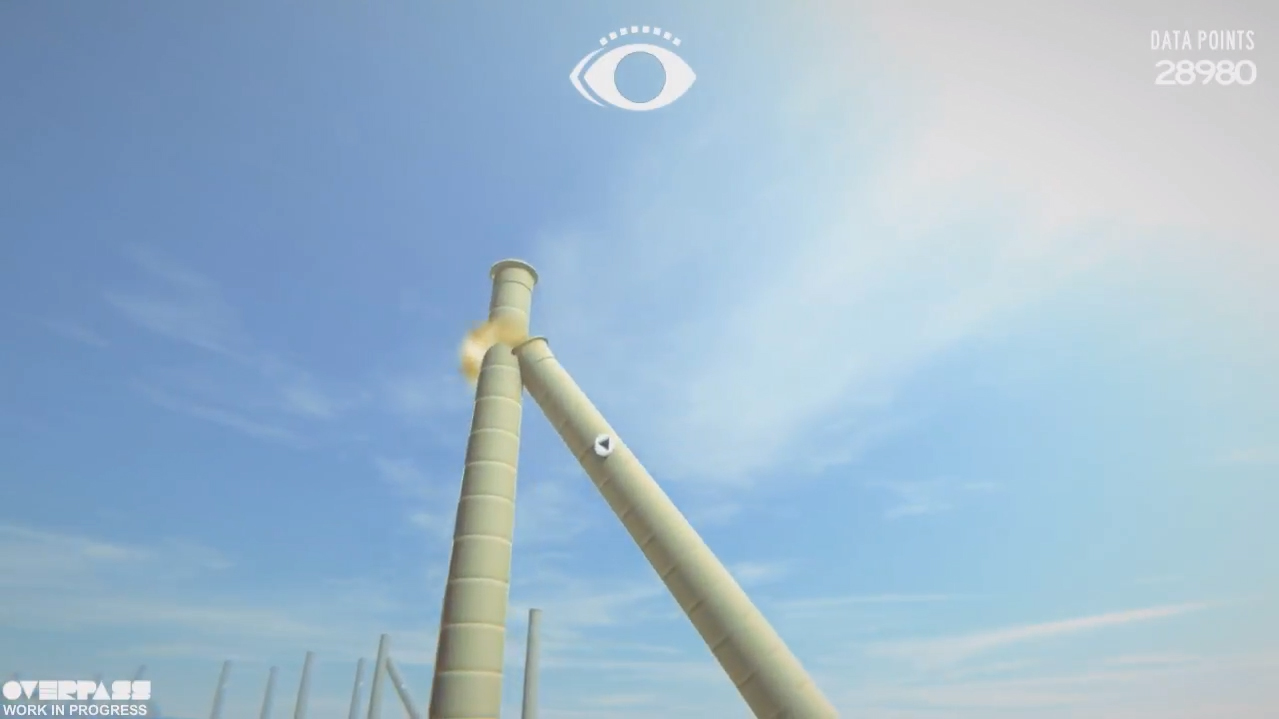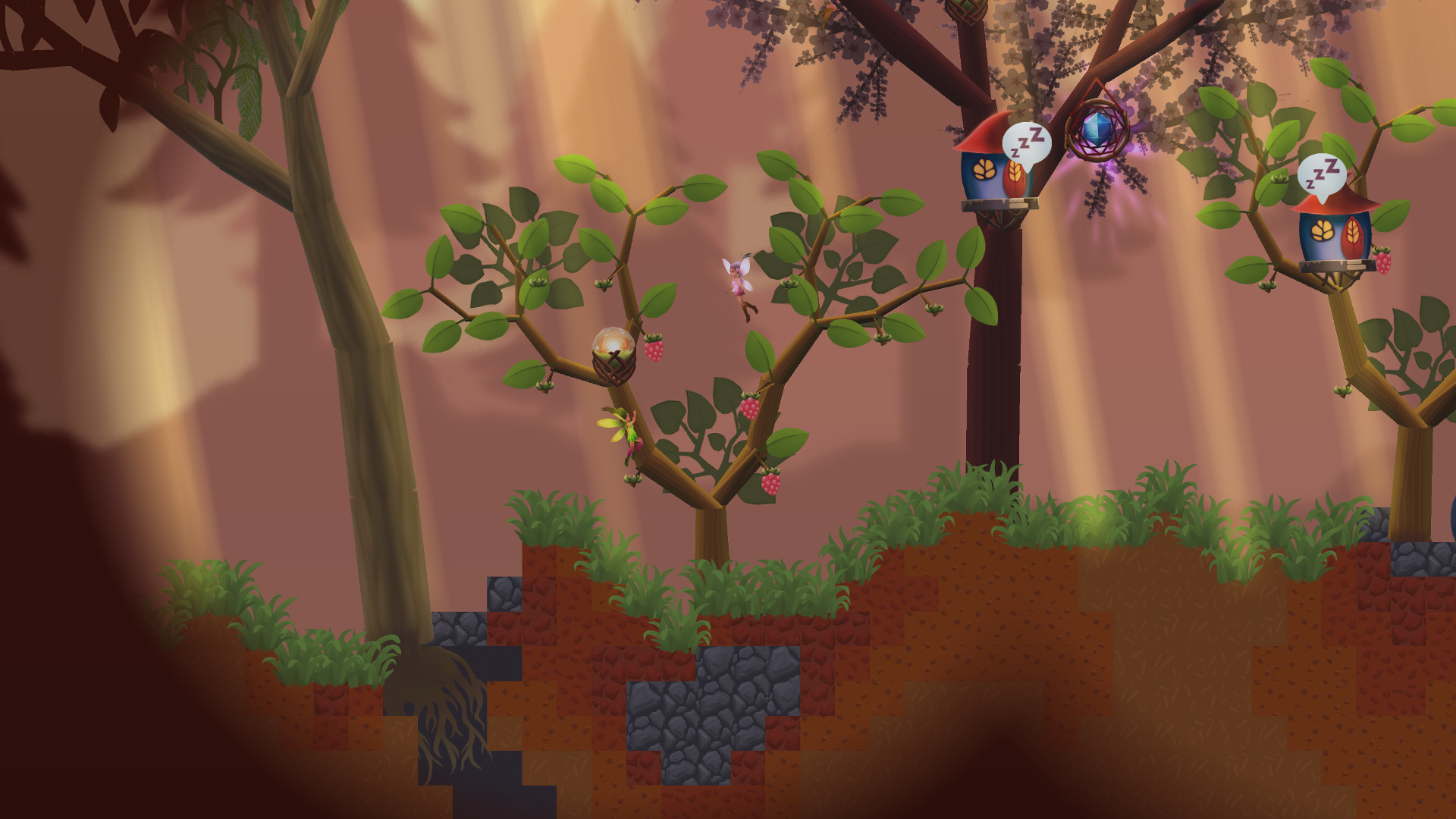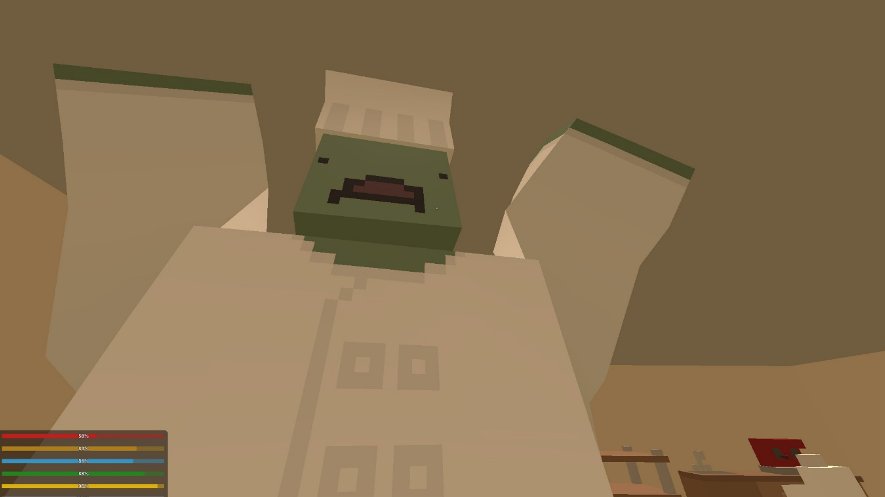This hypnotic rhythm game was the best thing we saw at IndieCade 2017
Plus, why the 'International Festival of Indie Games' is now one of our favorite gaming conventions.
The best thing I saw at IndieCade this year was a rhythm game called Overpass. It was one of those magical demos where you’re sure that maybe five percent of the actual game exists, and you’re running through the same proof-of-concept an eager developer is going to shop around to publishers—but it doesn’t matter, because you're sold.
Shows like IndieCade are tough, because it’s hard to sit down with a patient visual novel like, say, A Case of Distrust and expect to get an all-encompassing feel for it. Overpass, on the other hand, is immediate, tactile, and beautiful. It’s made for these things. So perhaps that’s an unfair advantage.
But still, goddamn. I love Frequency and Amplitude, Harmonix’s early tributes to candy-coated club music, and I still ride for DJ Hero, which forced you to buy a ridiculous turntable controller to spin along with Daft Punk. And in a lot of ways Overpass goes to the same church. Three tracks are stretching off into infinity, and you switch lanes by nudging the analog stick left or right. There are short notes you activate by tapping the A button, long notes you activate by holding the A button—pretty standard stuff.
The difference is that Overpass is played from an extraordinary perspective. You’re in a car, staring out the windshield at a constant cadence of archways and overpasses, each fixed with one of those notes. Some of these are far off in the vertical distance, like a massive skyscraper shadowing the road. Others are much closer, like the top of a narrow tunnel.

Rhythm games have always been played on a two-dimensional plane, but Overpass breaks that crucial rule. The notes are still coming at you in a clear, musical measure, but the depth of the geometry means your eye level is changing constantly. It’s a fascinating, maddening sensation, and it kinda needs to be experienced in order to be understood.
Developer Michael Molinari tells me Overpass was inspired by road trips where, as a kid, he would daydream out the window and imagine Samus Aran jumping through the buildings and highways. IndieCade was its first public unveiling. A brave new venture, upstairs in the cleared out foyer of a Japanese history museum.
On the floor at IndieCade
This was my first time going to an unabashed indie gaming expo. I’ve been to PAX, which has taken its humble webcomic-derived founding principles past the stratosphere, and I’ve covered E3, a show in the first tentative steps of opening its floor to paying customers. IndieCade, on the other hand, isn’t really in the business of making money. You will not get stuck in the Microsoft booth, you will not have to give up your email and phone number to play Uncharted. In fact, the biggest name on the floor might’ve been Glittermitten Grove, the rope-a-dope sleeper agent that gives way to Frog Fractions 2 if you know what buttons to push.
The biggest gaming news, reviews and hardware deals
Keep up to date with the most important stories and the best deals, as picked by the PC Gamer team.
But despite the complete absence of big-budget representation, IndieCade’s dominant customer base seemed to be dads, moms, and their kids. Yes, there are flocks of indie developers migrating between panels and workshops, and yes, there was a small cadre of press people trying to get work done, but I saw so many families in between those margins.

I’m not sure how much videogame star power means in 2017.
The show’s offerings were radical and abstruse (an ARG encoded in the writings of Ida B. Wells, a narrative focused on the dehumanizing Syrian refugee situation) and yet, to the average guest, that didn’t matter. The sales pitch wasn’t anything greater than a cheap, local show with some interesting games, and that worked beautifully.
This is something the indie scene has learned to do exceptionally well. The major expos, like the aforementioned E3 and PAX, are expensive and stressful. IndieCade, on the other hand, is extremely casual, simply because showfloor real estate gets a lot more open and navigable when you purge the megabooths. That means that IndieCade wasn’t hosting all-star independent developers like Supergiant or Playdead, but frankly, I’m not sure how much videogame star power means in 2017.
I think people (and kids specifically) are more inclined to fall in love with something weird, cool, and freshly uncovered than ever before. I think of Unturned, the cartoony zombie survival romp pioneered by a teenager in Canada. That game has been added to Steam accounts 24 million times, all without the slightest whiff of publisher support.

Those of us who’ve been around games for a long time might subconsciously sequester the indie scene—even if PC gaming started with small devs—but the kids don’t see the industry in the same way. They grew up in the era of the indie game success story. The story of Minecraft is indistinguishable from the Mass Effect saga. For them, there’s no reason IndieCade can’t be E3.
That’s what I kept thinking about during my time with Overpass. Right now it’s a hot-off-the-presses prototype that’s desperate to flirt with prospective publishers, but there’s absolutely a chance I was playing something that’s primed to take over the world, or at least someone’s world. We’ve inherited a games industry without a ceiling. The grand campaign can begin at the end of a public corridor, next to the Diaspora exhibit. The kids have seen through the corporate veneer and are prepared to be thrilled by anything, from anyone. As long as that stays true, it’s a great time to be making games.
All our coverage of IndieCade 2017 is collected together here.

Luke Winkie is a freelance journalist and contributor to many publications, including PC Gamer, The New York Times, Gawker, Slate, and Mel Magazine. In between bouts of writing about Hearthstone, World of Warcraft and Twitch culture here on PC Gamer, Luke also publishes the newsletter On Posting. As a self-described "chronic poster," Luke has "spent hours deep-scrolling through surreptitious Likes tabs to uncover the root of intra-publication beef and broken down quote-tweet animosity like it’s Super Bowl tape." When he graduated from journalism school, he had no idea how bad it was going to get.

